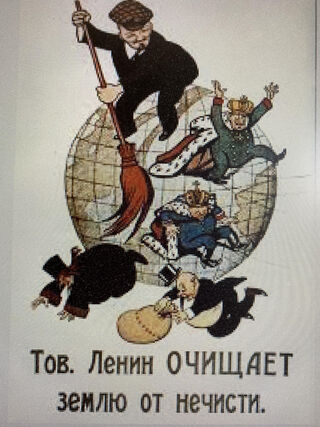Leadership
Understanding Putin's Next Steps
Wouldn't a leader have to be insane to launch a nuclear weapon?
Posted April 25, 2022 Reviewed by Gary Drevitch

What should we understand about recent speculation that Russia might use tactical nuclear weapons in Ukraine?
The historical record shows that Russian leader Vladimir Putin is not opposed to inhumane tactics. Also, questions have been raised about his mental stability. Some analysts suggest that he suffers from a small-man syndrome, "Napoleon complex," a personality disorder, or even steroid rage. However, The American Psychiatric Association's "Goldwater Rule" cautions us not to question any person’s mental health without direct examination. In Section 7 of its “Principles of Medical Ethics,” the association states, "It is unethical for a psychiatrist to offer a professional opinion unless he or she has conducted an examination and has been granted proper authorization for such a statement." Since a person with absolute power is not likely to agree to a mental health examination, though, must we then ignore the possibility of mental health issues in a person with the power to launch a nuclear weapon?
In November 1989, when Putin didn’t have absolute power, he was a KGB operative posted in Dresden who witnessed the local population rise up to advocate for the fall of Communist rule in East Germany. Fortunately, the Kremlin refused his request to deploy a Red Army tank unit stationed in Dresden to blast away protesters.
The Russian Federal Security Service playbook of misinformation is always at work
Putin rose to power by spreading lies about Yuri Skuratov, the prosecutor in charge of a corruption case involving Boris Yeltsin, President of Russia from 1991-99. He used a standard Russian playbook plan for eliminating political opponents: accusing Skuratov of being a pedophile. In Russia today, when Putin seems to be strangely isolated from advice dissuading provocative actions, thousands of people are in jail for pedophiliac crimes they did not commit.
Misjudgments of history generally lead to military and foreign policy failures; when they do not, it is not because of brilliance but luck. (The invasion of Crimea in 2014 was a dangerous but lucky move.) As a mathematician who deals with risk analysis, I can tell you that short strongmen tend to push their luck too far. With his invasion of Ukraine, Vladimir Vladimirovich Putin may have redeployed his last bit of luck.
Now isolated, he could lash out in disrupting ways. His latest threat is a test launch of Sarmat, a ballistic missile that “would make Moscow’s enemies stop and think.” Continuing the threat, he declared that Sarmat provides “food for thought for those who, in the heat of frenzied aggressive rhetoric, try to threaten our country.” That was a symbolic threat reversal, the use of a threat against a threat. Chancellor Karl Nehammer of Austria put it this way: “He is now in his own war logic.” C.I.A. director William Burns said that Putin’s “risk appetite has grown as his grip on Russia has tightened.”
Sooner or later, Russians will feel the pain of economic hardship
Russians will eventually learn more about the cost of the war in Ukraine—the large number of their dead soldiers, for example, and the coldhearted horrors inflicted on their neighbors. The official UN estimate of Russian soldiers killed in what Russia calls its "Special Military Operation" is over 13,000 in the first month of the war. (There were fewer than 2,000 American deaths in 20 years of the Afghanistan war.) These numbers cannot forever stay hidden from Russia's people who will find out that its army had struggled from incomprehensibly poor logistical planning and military command on the ground. They will learn that their troops deserted, raped, looted, murdered, and planted mines in retreat. Russian citizens cannot generally speak their minds unless they are willing to be imprisoned. But Putin cannot stop them from speaking forever.
Do we wonder what must be happening in Putin's mind?
What will Putin do to win? As military humiliation continues, he may become increasingly desperate to try his most inhumane tools of war. From his point of view, he would consider it rational; from ours, it would be insane. CNN analyst John Blake noted, “Poor logistical planning also played a critical role in Nazi Germany's defeat on the Eastern front, where Hitler expected a quick victory.” Through the testimony of many of his biographers, Putin is a leader who will not accept being humiliated as a fool for starting a war he cannot win. He will use monstrous tricks, false flags, and threats of the highest costs and riskiest tactics to win even if the odds are wildly against it. That is our greatest fear, and it is not at all irrational.
Fortunately, he does not appear to be clinically insane. He knows that firing even the smallest nuclear weapon at his disposal, one that would amount to almost the blast yield of the bomb dropped over Hiroshima, would be a red line for NATO. He knows that NATO could cripple his military without ever firing a nuclear weapon. It might be reluctant to involve troops now, but if Russia were to cross the nuclear red line, it could cost Putin Moscow. He might be irrational, but likely not so much as to destroy his military and the entire Russian economy. Does that take nuclear war off the radar? Possibly. So let us feel a little better.
References


